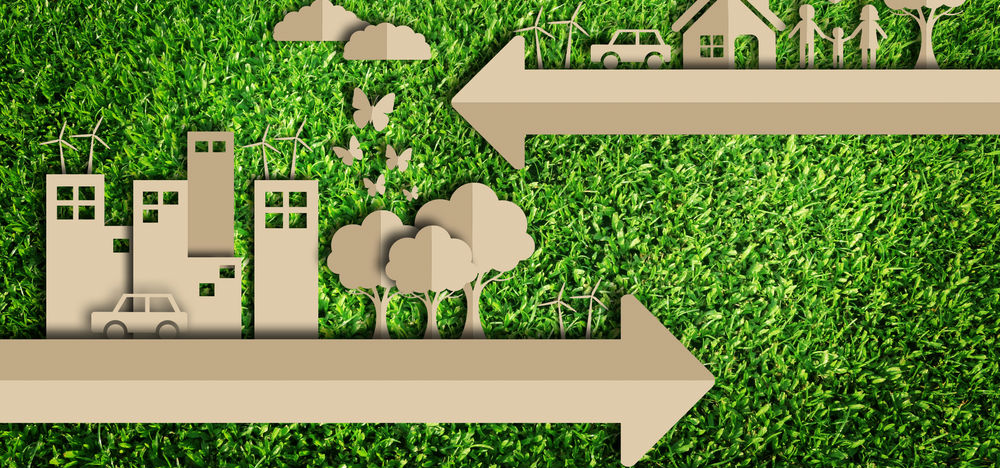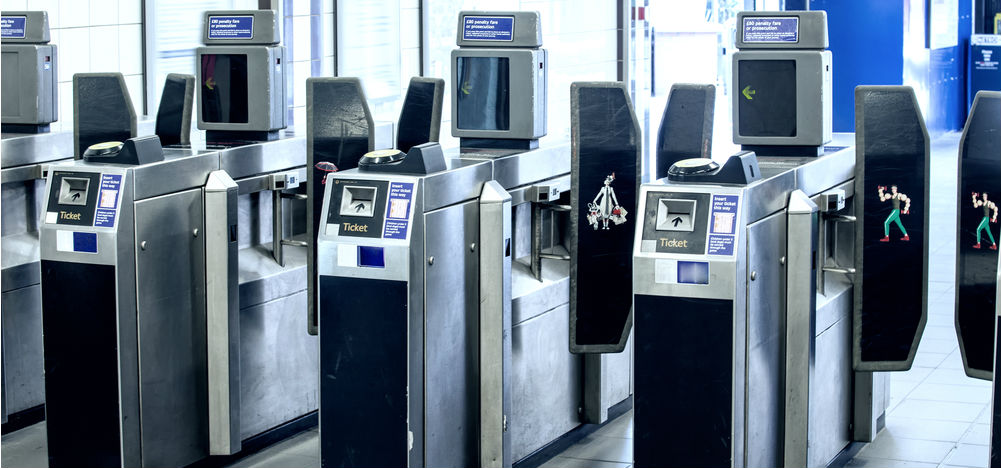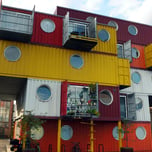- GreenMatch
- Blog
- Sustainable and Smart Cities around the World
From Sustainable to Smart Cities
Sustainable Cities: A Cleaner Future
For the past few decades, there has been an urbanisation trend around the world, where more and more people are moving to cities. Since 2009, the UN Habitat estimates that over 3 million people are moving into cities every week. Urban areas have been an attractive destination for migrants in hopes of finding a better job and a higher standard of living.
While migrants contribute immensely to the economies of cities, ever-increasing populations raise issues of congestion, distribution of resources, and increased pressure on waste management infrastructure, healthcare, and education. By 2050, it is estimated that 70% of the world’s population will live in cities which makes the concept of Sustainable Cities an efficient resolution to the growing population.

Therefore, Sustainable Cities have an essential role in the urbanisation trend to improve residents lives by focusing on environmental initiatives and projects such as limiting CO2 gas emissions in the air, using renewable energy sources, or bringing awareness to environmental issues. With outdoor pollution killing over 3 million lives yearly, mostly in cities, it is evident that urbanisation can increase the environmental effect upon cities. Many cities around the world have redesigned their city planning strategies and commenced initiatives to target these issues directly.
The map below, created by GreenMatch, highlights Arcadis’s Top 40 Sustainable Cities around the World, their current projects and environmental goals:
This table key ranks the Top Sustainable Cities in order:
 |  |  |  |
| Ranking 1 - 10 | Ranking 11 - 20 | Ranking 21 - 30 | Ranking 31 - 40 |
| Ranking | City | Score |
|---|---|---|
| #1 | Zurich | 87.9% |
| #2 | Stockholm | 87.1% |
| #3 | Geneva | 86.0% |
| #4 | Vienna | 84.5% |
| #5 | Frankfurt | 84.1% |
| #6 | Wellington | 81.1% |
| #7 | Rome | 79.4% |
| #8 | Sydney | 77.3% |
| #9 | London | 76.5% |
| #10 | Hamburg | 76.4% |
Arcadis's Sustainable Cities Index Information & Evaluation
Arcadis, a leading global design & consultancy firm for natural and built assets, composed a list of 100 Sustainable Cities around the World that have engaged in initiatives, projects and other forms to resolve the effects of urbanisation on the environment.
The city evaluations for Arcadis’s Sustainable Cities Index are based on three themes: People, Planet, and Profit. Greenmatch decided to filter the results and look into the Planets' theme's score for the top 40 cities. A city is evaluated into 7 categories under the Planet theme, then the scores are averaged.

Sustainable Cities Moving Forward
According to Arcadis's Index, Zurich takes first place with a total score of 87.9%. Zurich has initiated several projects that earned them first place such as their long-term goal to becoming a 2000-watt society by 2050. Another project was the Green City Zurich project that aims to preserve and increase all green spaces. These difficult goals are feasible when their government allocates investment funds, focuses on energy efficiency, renewable sources, and increasing the public’s awareness on sustainability.
Another city who has had a strong impact in combating climate change for its residents is Sydney. Coming out in the top 10, Sydney began the Sustainable Sydney 2030 initiative to reduce the city's carbon emissions by 70%. This goal will be beneficial for its residents because the quality of breathing air will improve along with reviving dying ecosystems. In addition, Sydney envisions a Smart City for the future to help improve public transportation, bring its citizens together and overall make the city more sustainable.
City planners, politicians and other organisations have designed many of the core sustainability projects and initiatives for cities; however, many ideas have been rooted from the public. For example, Rome, ranking 7 in Arcadis, began the Participate 3- Year Project that allows citizens to contribute to possible resolutions for urban problems. Sustainable and innovative solutions like this allow for the public to engage in the transformation of their cities and develop effective resolutions.
Although sustainable cities are a great way to combat urbanisation issues, Smart Cities go further by improving the quality of lives through better communication technologies and efficiency of urban operations while enveloping sustainable cities core values.

The Transition: Sustainable to Smart Cities
Imagine: Walking out of your home at 6:15 AM and you begin to drive to the inner city for work. Through the congested traffic on the freeway and street, you manage to arrive at the inner city by 7:15 AM. However, you must now spend the next 30 minutes looking for an available parking space, leaving you less than 15 minutes to arrive in the office.
Now, for many of you, this scenario is a daily occurrence of your life and this causes frustration, stress, and difficulty to continue. However, for the past few years, many cities have begun their Smart City transformation in order to address these urbanisation issues and help its residents live a more efficient, happy, and comfortable life.
What is a Smart City?
According to the Focus Group on Smart Sustainable Cities of ITU’s Telecommunication Standardization Sector (ITU-T), “a smart sustainable city is an innovative city that uses information and communication technologies and other means to improve quality of life, efficiency of urban operation and services, and competitiveness, while ensuring that it meets the needs of present and future generations with respect to economic, social and environmental aspects.”
If you would reimagine the scenario with Smart City applications, your daily commute can be reduced by half. By incorporating smart devices, you can optimise traffic, find open parking spaces, and make your life less stressful. The United Kingdom has been noted to take a strong interest in transforming their cities in becoming smarter. Take a look at the map below, created by Greenmatch, that highlights the Top 17 Smart Cities in the UK that made it on Huawei's UK Smart Cities Index.
This table key ranks the Top UK Smart Cities in order:
 |  |  |  |
| Ranking Leaders | Ranking Contenders | Ranking Challengers | Ranking Followers |
| Ranking | City | Score |
|---|---|---|
| #1 | London | 80.5% |
| #2 | Bristol | 80.2% |
| #3 | Birmingham | 77.9% |
| #4 | Glasgow | 75.1% |
| #5 | Manchester | 74.2% |
| #6 | Milton Keynes | 72.5% |
| #7 | Leeds | 70.5% |
| #8 | Peterborough | 68.2% |
| #9 | Nottingham | 51.8% |
| #10 | Sheffield | 38.1% |
Huawei's UK Smart Cities Index Information & Evaluation
Huawei, a leading provider of global information and communication technology solutions, released the UK Smart Cities Index highlighting 17 UK cities that have been transforming their city to tackle the enlarging urban issues. 6 out of the 40 cities in Arcadis's Sustainable Cities Index also ranked in the Top 17 Smart UK Cities and have shown considerable achievements towards their development. However, how did they land on this ranking?
The city evaluations for Huawei’s UK Smart Cities Index are based on two dimensions: Strategy and Execution. Each dimension is split into five categories and these individual scores are summed to get the average between the two scores. In Huawei’s UK Smart Cities Index, the score of the ranking is split between Leaders, Contenders, and Challengers. Then, there are seven cities that are Followers, who are taking steps for their city's transformation.
Smart UK Cities: Think Forward, Think Smarter
Although London ranks 9th in Arcadis's Sustainable Cities in the World, London ranks 1st in Huawei's UK Smart Cities Index. London ranks as the 1st place leader for its significant strategies and executions with an overall score of 80.5. London has initiated several new projects such as the London Datastore, which is Free Open Data Access, that brings information to the public and engages with new users. In addition, the city is currently pursuing a Low Carbon Capital strategy to reduce carbon emissions by 60% by 2025 against the 1990 levels. Through the insertion of city traffic sensors, parking sensors, and alternative modes of transportation, the city can significantly reduce wasted time and achieve these environmental goals.

Following London, Bristol earned 2nd place with an overall score of 80.2. The push for a central digital hub for each smart city is a necessity in order to engage a wider audience and utilise datasets to innovate efficient solutions. Bristol began a data sharing program in order to engage with its residents and pool in new ideas to tackle other urban problems. Another project that they began was to manage their energy use with an energy company, Bristol Smart Energy City. They'll optimise the usage and distribution of energy for the city. This will help reduce the loss of fossil fuels and will make 100% renewable energy using cities a possibility.
The emergence of smart vehicles is becoming a reality each day and cities across the world are slowly piloting their cities to test these new transportation vehicles. The ambitious city, Milton Keynes, is 1 of 4 cities in the UK to pilot autonomous cars. Since 2015, they have been testing these vehicles and seeing how it been able to integrate with other transportation systems. Alongside with utilising autonomous vehicles, Milton Keynes is very active in the IoT(Internet of Things) movement for smart cities. They began to incorporate sensors into recycling bins, parking spaces, people presence and even soil moisture in parks. These small projects will help reduce congestion of vehicles on the road, increase green spaces, and attract more people to be outside.

The Future of Smart Cities is Now
Problems in this world will never end or diminish, they'll simply evolve and grow. However, if cities around the world share their ideas, goals, and dreams then we can learn to resolve these challenges together. Although Europe seems to be the leader in the transformation of Smart and Sustainable Cities, there are cities all over the world who have taken necessary steps to help this planet.
Here is a full list of the total Sustainable and Smart Cities from Arcadis's and Huawei's Index
| Continent | Number of Cities |
|---|---|
| Africa | 4 |
| Asia | 23 |
| Australia | 5 |
| Central and South America | 6 |
| North America | 22 |
| Middle East | 8 |
| Europe | 37 |
While Europe holds about 35% of the total cities engaged in Sustainable and Smart City projects, the other 65% of the cities in this compiled list has initiated into notable projects. For example, in Asia, making up about 21% of the cities, Seoul is engaged in 139 projects in 13 districts with aims to transform the urban metropolis into a comfortable, safe, and efficient community. Cities like in Dubai, in the Middle East, has had a growing problem with pollution but, launched their Integrated Energy Strategy Action plan to reduce energy demand by 30% by 2030. In return, they'll have lower levels of wasted energy and fossil fuels.
Read more: World's Greenest Countries
These ambitious projects are opportunities to learn from one another and, if possible, apply in one's own city to advance forward together. Cities will continue to grow, people will continue to come, and Smart Cities will continue to be necessary to manage the environmental, economic, and social effects of urbanisation. If you want to see changes in your city, navigate through Greenmatch's two maps, learn about Huawei's UK Smart Cities Index or Arcadis's World's Sustainable Cities Index and, start your city transformation today.
On GreenMatch you can find information sustainability and renewable energy topics. Besides that, we also provide a comparison service, where we help you compare compare quotes for sustainable home improvements. Such as double glazing near you, solar panel installation and heat pumps.
We strive to connect our customers with the right product and supplier. Would you like to be part of GreenMatch?





